Outlaws Quotes
Quotes tagged as "outlaws"
Showing 1-30 of 33
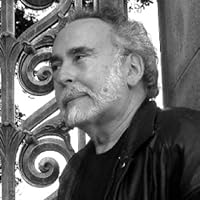
“We don't steal from the rich and give to the poor. We steal from the poor because they can't fight back --most of them-- and the rich take from us because they could wipe us out in a day.”
― The Last Unicorn
― The Last Unicorn
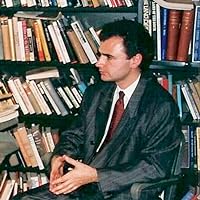
“Is it possible to write a poem or are these words just screams of outlaws exiled to the desert?”
― The Sun Watches the Sun
― The Sun Watches the Sun

“Those persons who refuse to act as symbols of society's folk ways, as counters in the game of society's ordaining, are outlawed.”
― The Radical Will: Selected Writings 1911-1918
― The Radical Will: Selected Writings 1911-1918

“I do not wish to give the order full force without giving timely warning but I am a widow's son outlawed and must be obeyed.”
―
―
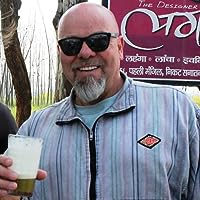
“Interesting how some words that hold basically the same meaning can have different connotations. Take ‘outlaw’ and ‘criminal’ for instance.
‘Outlaw’ has an almost romantic, nostalgic meaning – you tend to think of Jesse James or Robin Hood when you think of outlaws. Billy the Kid has been described as both a ‘notorious outlaw’ and a ‘beloved folk hero.’
‘Criminal’ however has a completely different connotation. We think of muggers, burglars, armed robbers etc.
Nobody really wants to have a ‘criminal’ in their family tree, but the idea of having ‘outlaw blood’ is exciting and glamorous”
― Wrong Planet - Searching for your Tribe
‘Outlaw’ has an almost romantic, nostalgic meaning – you tend to think of Jesse James or Robin Hood when you think of outlaws. Billy the Kid has been described as both a ‘notorious outlaw’ and a ‘beloved folk hero.’
‘Criminal’ however has a completely different connotation. We think of muggers, burglars, armed robbers etc.
Nobody really wants to have a ‘criminal’ in their family tree, but the idea of having ‘outlaw blood’ is exciting and glamorous”
― Wrong Planet - Searching for your Tribe

“As for righting wrongs and fighting for civil liberties, that sort of thing, it wouldn't be so bad ... but then we have to sing those songs about wearing Lincoln green and aiding the oppressed. We don't, Cully, we turn them in for the reward, and those songs are just embarrassing, that's all, and there's the truth of it.”
― The Last Unicorn
― The Last Unicorn

“He had a hint of a Southern drawl, as if he’d worked hard to hide it, but couldn’t quite rid himself of the last of it. It was rough and gravelly, and had the seductive warmth of sinking into strong arms in front of a cozy fire. To my surprise, a spark of that long-dead heat stirred in my belly. This wasn’t the sort of response a woman should have to finding a strange man in her barn.”
― Gambling on the Outlaw
― Gambling on the Outlaw

“She was dangerous. I’d heard the rumors, that she had a history as a wild woman, that she’d been married to a gambler, maybe even been one herself, that her past was scandalous at best. But who was I to judge? My past was littered with scandal.”
― Gambling on the Outlaw
― Gambling on the Outlaw
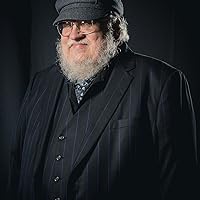
“Outlaws or poachers, makes no matter. Dead men make poor company.”
― A Knight of the Seven Kingdoms
― A Knight of the Seven Kingdoms

“Yowpee! I pulls my brandin' irons an' comes out a-bitin' the dust—a reg'lar Hoopalong Cassowary!”
― Pogo: The Complete Syndicated Comic Strips, Vol. 1: Through the Wild Blue Wonder
― Pogo: The Complete Syndicated Comic Strips, Vol. 1: Through the Wild Blue Wonder

“It strikes me you might place your gifts better. Why should you send powder to a ruffian who will use it to commit crimes? But for the deplorable weakness every one here seems to have for the bandits, they would have disappeared out of Corsica long ago."
"The worst men in our country are not those who are 'in the country.'"
"Give them bread, if it so please you. But I will not have you supply them with ammunition."
"Brother," said Colomba, in a serious voice, "you are master here, and everything in this house belongs to you. But I warn you that I will give this little girl my mezzaro, so that she may sell it; rather than refuse powder to a bandit.”
― Colomba
"The worst men in our country are not those who are 'in the country.'"
"Give them bread, if it so please you. But I will not have you supply them with ammunition."
"Brother," said Colomba, in a serious voice, "you are master here, and everything in this house belongs to you. But I warn you that I will give this little girl my mezzaro, so that she may sell it; rather than refuse powder to a bandit.”
― Colomba

“When we go to the fair in disguise, we never win at archery or at singlestick. We do get some nice compliments on our disguises, but no more than that.”
― The Last Unicorn
― The Last Unicorn
“Most outlaws steal money and I haven’t got anything against that but
You’re different because you steal dreams .”
―
You’re different because you steal dreams .”
―
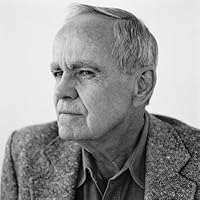
“God made this world, but he didn’t make it to suit everybody did he.”
― Blood Meridian, or, the Evening Redness in the West
― Blood Meridian, or, the Evening Redness in the West

“Joe knew what the nod meant-this was why they became outlaws. To live moments the insurance salesman of the world, the truck drivers, and lawyers and bank tellers and carpenters and realtors would never know. Moments in a world without nets-none to catch you and none to envelop you. Joe looked at Dion and recalled what he’d felt after the first time they’d knocked over that newsstand on Bowdoin Street when they were thirteen years old, We will probably die young.”
―
―
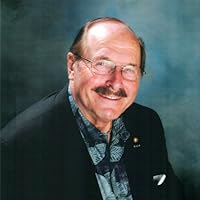
“Sixty years prior to the death of “Che” Guevara and high in the same Bolivian highlands, Butch Cassidy and Harry A. Longabaugh, “the Sundance kid,” were holed up and then gunned down by the Bolivian army. It is thought that being mortally wounded, one of them shot the other before shooting himself. Attempts to find any remains that match the DNA of living relatives, has so far failed.
However, Butch Cassidy's sister, Lula Parker Betenson, maintained that her brother returned to the United States and lived in seclusion for years. In 1975, Red Fenwick, the feature writer and columnist at The Denver Post, stated that he was acquainted with Cassidy's physician, who continued to treat him for some years after he supposedly was killed in Bolivia.”
―
However, Butch Cassidy's sister, Lula Parker Betenson, maintained that her brother returned to the United States and lived in seclusion for years. In 1975, Red Fenwick, the feature writer and columnist at The Denver Post, stated that he was acquainted with Cassidy's physician, who continued to treat him for some years after he supposedly was killed in Bolivia.”
―
“I talk of those incidents [with Bonnie and Clyde] as if I were not a part of any of it, like a character in a book I once read. It’s the only way I keep from going crazy. Maybe we were all pretty young then, but we knew what we were doing. Clyde never held a gun to my head. I was there because I wanted to be! What’s that they say in the movies? ‘The show must go on!’ Well, life goes on.”
― My Life with Bonnie and Clyde
― My Life with Bonnie and Clyde
“Actually, despite his earlier vow to one day raid Eastham, Clyde Barrow tried to go straight when he was paroled. He first helped his father make preparations to put an addition onto the service station, then traveled to Framingham, Massachusetts, to take a job and get away from his past in Texas. However, he quickly grew homesick and returned to Dallas to work for United Glass and Mirror, one of his former employers. It was then that local authorities began picking Barrow up almost daily, often taking him away from his job. There was a standing policy at the time to basically harass excons. Barrow was never charged with anything, but he soon lost his job. He told his mother, in the presence of Blanche Barrow and Ralph Fults, 'Mama, I'm never gonna work again. And I'll never stand arrest, either. I'm not ever going back to that Eastham hell hole. I'll die first! I swear it, they're gonna have to kill me.' ... Mrs. J. W. Hays, wife of former Dallas County Sheriff's Deputy John W. “Preacher” Hays, said, 'if the Dallas police had left that boy [Clyde Barrow] alone, we wouldn't be talking about him today.”
― My Life with Bonnie and Clyde
― My Life with Bonnie and Clyde
“On Clyde inviting Buck to join him and Bonnie: [W.D.] Jones later said, 'He [Clyde] didn't mean to do Buck no harm. He just couldn't see that far ahead.' Of Blanche, he said 'She was a good little girl— good—hearted. She begged Buck not to go. She slipped into a trap. Blanche was just an innocent little girl who got mixed up in something—a love affair. I never knew that love could be so strong.”
― My Life with Bonnie and Clyde
― My Life with Bonnie and Clyde
“Of her portrayal in the 1967 movie, Bonnie and Clyde, Blanche said, 'That movie made me out like a screaming horse's ass!' ... 'I was too busy moving bodies [to act hysterical],' Blanche herself said. ... Her image in this memoir, as well as in Fugitives and in Cumie Barrow's manuscript, was fashioned at a time when Blanche could have easily been charged with the Joplin murders. That may account for the great difference in tone Between Blanche, the young convict in Missouri State Penitentiary, and Blanche, the elder ex-fugitive. Indeed, at least one of Blanche Barrows' champions, Wilbur Winkler, the Deni— son man who co-owned (along with Artie Barrow Winkler) the Cinderella Beauty Shoppe, used Fugitives to try to obtain a parole for Blanche from the Missouri Board of Probation and Parole. In letters to the Platte County prosecutor and the judge involved in Blanche's case, Winkler alluded to the book's description of Blanche in Joplin in an effort to win their support for her release: 'Blanch [sic] ran hysterical [tic] thru [sit] the gunfire down the street carrying [her] dog in her arms,' Winkler wrote. He even sent copies of the book to them—and to others.”
― My Life with Bonnie and Clyde
― My Life with Bonnie and Clyde
“[W.D.] Jones later commented that people frequently helped them, 'Not because it was Bonnie and Clyde. People in them days just helped—no questions asked.”
― My Life with Bonnie and Clyde
― My Life with Bonnie and Clyde

“I wrote this memoir to show I can help others do what I had the courage to do for myself; write a family legacy. I gave all my secrets away” – Edie Little”
― How Wonder Woman Became a Smuggler: A legacy of family trauma
― How Wonder Woman Became a Smuggler: A legacy of family trauma

“Clearing tables? We're bloody outlaws, not maids. Next you know he'll be asking us to wash our own laundry. Then what would my mum do?”
― Hood
― Hood

“The Pirate Code by Stewart Stafford
Highwaymen of the high seas,
Outlaws of the oceans deep,
Plundering the crown's gold,
They may hang us as we sleep.
Home is but a distant memory,
Friends are anyone we can find,
Turncoats walk the plank slowly,
Or are keelhauled with jellyfish in brine.
The Robin Hoods of seaweed spray,
We rob the rich to give to ourselves,
Growing fat on finest grog and food,
And make pieces of eight into twelve.
© Stewart Stafford, 2022. All rights reserved.”
―
Highwaymen of the high seas,
Outlaws of the oceans deep,
Plundering the crown's gold,
They may hang us as we sleep.
Home is but a distant memory,
Friends are anyone we can find,
Turncoats walk the plank slowly,
Or are keelhauled with jellyfish in brine.
The Robin Hoods of seaweed spray,
We rob the rich to give to ourselves,
Growing fat on finest grog and food,
And make pieces of eight into twelve.
© Stewart Stafford, 2022. All rights reserved.”
―
“Courage, little comrade at arms," he whispered. "The battle lowers, the bugle of Christ calls 'Forward!' Shall we falter in the charge? We follow a leader crucified.”
― Outlaws of Ravenhurst Catholic Audiobook Cd Set
― Outlaws of Ravenhurst Catholic Audiobook Cd Set
“...perhaps the Great American Desert's importance to the Western genre derives from the nineteenth-century view of the arid West as the natural refuge of Indians and, by extension, of all outlaws. The agrarian ideal, with its roots in Rousseau's thought, defined civilisation as arising from the agricultural life, so the migratory Indians - often compared in nineteent-century writings to Tartars and Bedouin - were, by reason of their socioeconomic organisation, outside the pale of civilised society and the area in which they moved was regarded as fit only for outlaws. It is as a milieu within which men outside civilised, agrarian society resolve their tensions, both personal and social, that the Western has used the myth of the Great American Desert, as in Riders of Death Valley (Forde Beebe and Ray Taylor, 1941), The Last Wagon (Delmer Daves, 1956), The Law and Jake Wade (John Sturges, 1958) and the Boetticher cycle.”
― Cinema, A Quarterly Magazine, No. 4, October 1969
― Cinema, A Quarterly Magazine, No. 4, October 1969
All Quotes
|
My Quotes
|
Add A Quote
Browse By Tag
- Love Quotes 97.5k
- Life Quotes 76k
- Inspirational Quotes 73k
- Humor Quotes 44k
- Philosophy Quotes 29.5k
- Inspirational Quotes Quotes 27k
- God Quotes 26k
- Truth Quotes 23.5k
- Wisdom Quotes 23.5k
- Romance Quotes 23k
- Poetry Quotes 22k
- Death Quotes 20k
- Happiness Quotes 18.5k
- Life Lessons Quotes 18.5k
- Hope Quotes 18k
- Faith Quotes 18k
- Quotes Quotes 16.5k
- Inspiration Quotes 16.5k
- Spirituality Quotes 15k
- Religion Quotes 15k
- Motivational Quotes 15k
- Writing Quotes 15k
- Relationships Quotes 14.5k
- Life Quotes Quotes 14k
- Love Quotes Quotes 14k
- Success Quotes 13.5k
- Time Quotes 12.5k
- Motivation Quotes 12k
- Science Quotes 11.5k
- Motivational Quotes Quotes 11.5k

